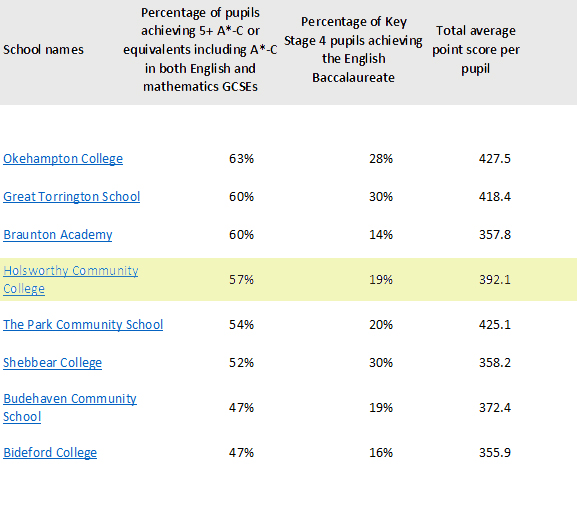The Academies Programme has, according to the Government in its Free Schools Report today, introduced what it calls ‘healthy competition’ into our education system, that it claims may have helped drive improvement in English schools since 2010. Of course, as usual, that is only part of the story.
Schools are getting better… but they are not necessarily Free Schools!
While the government are spinning the report like crazy, saying that the academy model has made the state of schools improve generally, Graham Stuart, the Chair of the Education Committee actually said today: “It’s still too early to know how much the academies programme has helped raise standards. What we can say is that, however measured, the overall state of schools has improved during the course of the programme.” 
What this really indicates is that the ‘threat’ of compulsory academisation, coupled with stricter Ofsted standards, and £ millions of educational funding being thrown at ‘experimental’ free schools has perhaps resulted in an improvement in ALL schools over the past 5 years.
What is crucial is that this report categorically does not state that this improvement is as a direct result of academies and free schools – most of the improvement has come from local authority schools and the report itself makes no mention at all of the sunken cost to achieve this improvement.
Readers should remember that the initial converter academies were limited (some might say ‘cherry-picked’) to those schools with an existing Ofsted judgement of “outstanding” and then to schools which were rated “good with outstanding features”. These schools also received approximately 10% additional funding through the Local Authority Central Spend Equivalent Grant (LACSEG) until funding regulations were latterly brought into line. It should come as no surprise that with this bonus in their bank balances, these schools should have gone on to show even more improvement than their peers. What may surprise you is that in more than a few cases, many of these schools actually FAILED to improve!
According to a recent National Audit Office report, the Free Schools budget is nationally £1 billion overspent and that the academies programme has caused the Department for Education (DfE) to be a further £1 billion overspent is a national scandal. Why is the government not being taken to task for this horrendous mismanagement of public spending at a time when every other public service, from libraries to old peoples homes to the emergency services is being cut by £ millions each year?
The money wasted on free schools could and should have been spent on all school children, regardless of where they happened to live or at the very least targetted at the most vulnerable categories of children, not just those who happened to be in a particular kind of school favoured by the then Secretary of State’s own political ideology.
The report published today goes on to state that “current evidence does not prove that academies raise standards overall or for disadvantaged children. It is clear though that academisation has led to greater competition (NDG: which implicitly the government believe is good), challenging many maintained schools to improve and incentivising local authorities to develop speedier and more effective interventions in under-performing schools.”
The report says that “While some (academy) chains have clearly raised attainment, others achieve worse outcomes, creating huge disparities within the academy sector and compared to other mainstream schools. To address this problem, Ofsted should be given the power to inspect academy chains in the same way it does local authorities“.
“Nearly half of all academies are not part of a chain. By being ‘stand-alone’, these schools risk becoming isolated from others and as such as both less likely to contribute to others and less supported if they begin to fail. In future Ofsted should require evidence of effective partnership with another institution before any school can be judged ‘outstanding‘”.
These findings raise serious questions around the establishment and funding of existing free schools and the basis upon which the decisions to approve them were taken.
Free School Funding Approvals Flawed
The Education Committee continue: “With regard to free schools, the DfE needs to be far more transparent about how and where it decides to fund new free schools. The DfE should also generally avoid opening free schools in areas which have both spare places and an overwhelming majority of good or outstanding schools.”
At long last someone in government seems to recognise what we in North West Devon have been saying for the past three years.
With overwhelming evidence that the Route 39 Free School application was based upon wholly fanciful and unrealistic projections of demand, misrepresentations of local secondary schools performance and a complete (and some might say intentional) failure to engage with the local community, the DfE and the Education Funding Agency should be seriously reviewing the decision-making surrounding the approval of the Route 39 application and taking appropriate steps to recover the situation.
Until this is done, the public can and will have no confidence in either organisation and one has to wonder how long this charade can continue!
Conclusions and recommendations
In its report from the wide ranging inquiry into the impact of the Government’s Academies and Free School Programme, the Education Committee has today called upon the Department for Education to:
Academies
- Publish clear information setting out the process and criteria by which sponsors are authorised and matched with schools.
- Publish data on the performance of individual academies and each Multi Academy Trust or chain.
- Publish clear information setting out the process and criteria by which funding agreements are reviewed and renewed.
- Review the length of funding agreements (in the light of US experience of Charter Schools) with a view to reducing the model agreement to five years.
- Analyse what makes academy chains effective and actively promote best practice more widely amongst other chains.
- Separate the regulatory and funding roles of the Education Funding Agency, in order to restore public confidence in the academies process.
- Address the serious problems posed by conflicts of interest by taking further steps to strengthen the regulations for governance in academy trusts.
- Create a mechanism for schools to be able to leave academy chains where appropriate.
- Be more open and transparent about the accountability and monitoring system applied to chains and the criteria used to pause their expansion.
- Give Ofsted the power it needs to inspect academy chains.
- Require all academies and chains to publish the salary and other remunerations of senior leaders (within bands) in their annual accounts.
- Publish a protocol for dealing with the failure of a large chains and for how individual schools will be treated when a chain can no longer run them.
Free Schools
- Make clear how competition for free school funding is decided and the relative weight that is given to innovation, basic need, deprivation and parental demand.
- Ensure that local authorities are informed of any proposal to open a free school in their area.
- Collect statistical information on free school intakes and monitor the impact of new schools on the intake and attainment of neighbouring schools.
Primaries
- Commission research as a matter of urgency to assess the impact of academy status on attainment in primary schools.
- Make maintained primary schools in federations eligible for funding through the Primary Chains Grant to assist collaboration between primary schools.
- Review the lessons of wholesale rapid conversion across the secondary sector to identify lessons that can better inform any future expansion.
The Committee has also called upon the Education Funding Agency to:
- Enhance transparency and accountability around how it monitors academy funding agreements.
- Revise its guidance on ‘at cost’ transactions to make expectations of academies clearer.
These conclusions and recommendations paint a fairly damning picture of the mistakes, mismanagement and wilful disregard for our children shown over the past five years by the DfE and EFA in their pursuit of this Governments assault on our education system and despite the clamour and objections of educational professionals, parents, carers and communities across the country.
It’s about time this Government took responsibility for these failings, though one expects with an election looming, perhaps the individuals that have orchestrated and overseen this mess won’t be around very much longer to have to worry about it!





